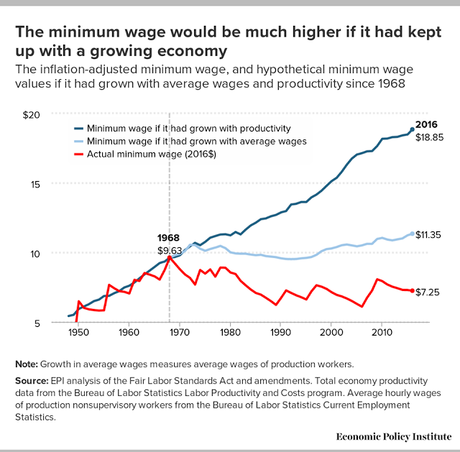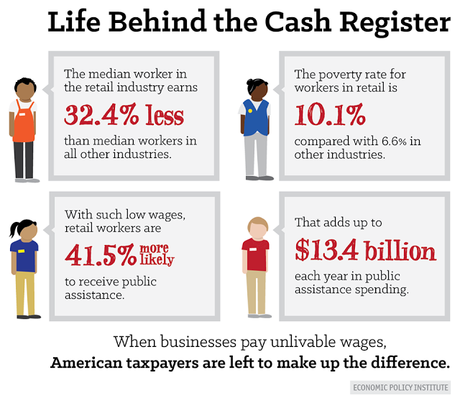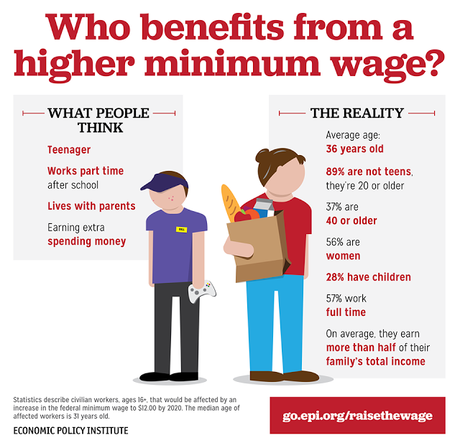
Our economy is still limping along. While the rich and the corporations have rebounded from the Bush recession (and are enjoying record-breaking incomes and profits), most Americans have not. Unemployment is still too high and wages are still stagnant (meaning with inflation, workers have less buying power than before the recession). This has resulted in weak demand for goods/services, resulting in both weak GDP and job growth.
Donald Trump has promised to produce massive job creation. Unfortunately, his solution is the same old failed "trickle-down" economics that has failed for many years now -- to give huge new tax breaks to corporations (and the rich). That will pad the bank accounts of the people who don't need help, but will not boost the economy or create enough new jobs. These groups are already sitting on trillions of dollars, but not creating jobs.
That's because tax breaks do not create jobs, regardless of what Trump or the Republicans say. There is only one thing that creates new jobs or boosts the economy -- an increase in the demand for goods and services. So, how can we increase that demand? Demand is increased when the masses have money to spend. And it is decreased when the buying power of the masses decreases (which is now the case).
The easiest and fastest way to increase demand substantially would be to raise the minimum wage to a livable wage -- say $15 an hour. This would increase the financial well-being of at least a third of the population, and put upward pressure on the wages of many more Americans. That bottom third would spend that new money they make (since they are barely subsisting now), and that new spending would increase the demand for goods/services -- which would create jobs to meet that new demand, and increase the profits of the business sector as they meet that demand.
Republicans like to say that increasing the minimum wage would cost jobs and make businesses uncompetitive. Neither is true, as many studies have shown. Substantially increasing the minimum wage would be good for workers, businesses, and the economy in general. And the side benefit is that it would be good for government also, taking many people off government assistance (and reducing the deficit).
Here's what Lawrence Michel at the Economic Policy Institute had to say on November 29th about raising the minimum wage to $15 an hour:
T
oday, working people across the country, from fast food workers to adjunct professors, are striking and demonstrating in favor of a $15 minimum wage—the largest demonstration in the history of the Fight for $15 movement, which has invigorated the debate over raising the minimum wage and helped make a $15 minimum wage and a union the standard for people who care about an economy that works for everyone. EPI applauds this effort and urges Congress to listen to the American people and raise the minimum wage. For some employers, policymakers, and even economists, $15 an hour sounds high. But against the backdrop of rising productivity and an increasingly educated workforce, it’s clear that raising the federal minimum wage to $15 by 2025 is a bold target but something the economy can afford. For decades, workers’ wages have been stagnant even as productivity has risen steadily. And indeed if the minimum wage had risen alongside productivity, it would be well over $15 today. The fact that it has languished at $7.25 is a reflection of deliberate policy choices to keep wages low—not the laws of economics. We should not ask today’s low-wage workers to pay for years of policy choices made on behalf of the rich and powerful by saying that $15 an hour is “too high,” when throughout most of the country, it is barely enough to get by. A bold proposal such as $15 is needed to lift the earnings of the bottom third of the workforce, generate robust wage growth overall, and fuel economic growth.


